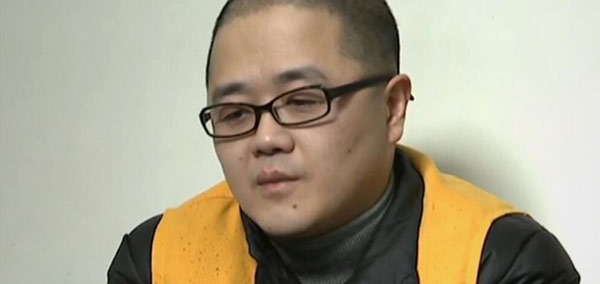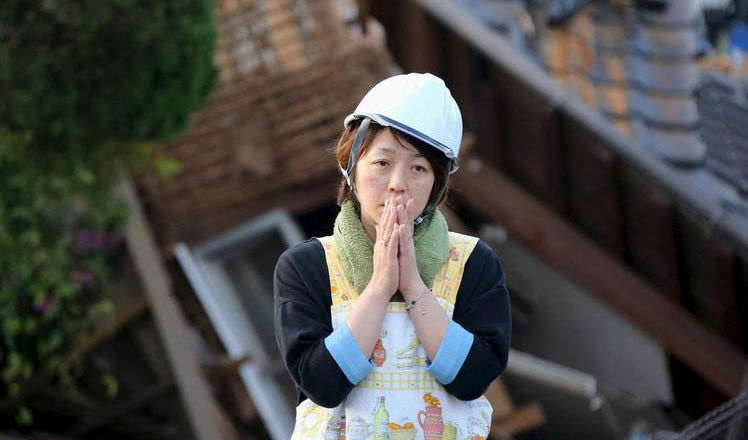Man sentenced to death for leaking State secrets
Updated: 2016-04-19 11:18
By Ma Chi(chinadaily.com.cn)
|
||||||||
 |
|
A screen shot shows Huang Yu, who was sentenced to death for leaking top State secrets. |
A man was sentenced to death for leaking top State secrets to foreign agencies, cctv.com reported on Monday.
Huang Yu, 42, worked for an encryption research institute in Sichuan province from 1997 to 2004. In 2002, Huang was told he would be dismissed due to his poor performance in work. One day, Huang contacted a foreign spy agency online to sell the confidential information he acquired at work, and he met a foreign spy in a hotel in a Southeast Asian country in June.
During the meeting, Huang gave three electronic documents containing military secrets to the foreign spy for which he was paid $10,000 and was promised a monthly sum of $5,000 for more documents.
Since then, Huang traveled overseas regularly under the guise of attending meetings to meet the foreign spy.
Before Huang was detained in 2011, he leaked more than 150,000 materials, including 90 top State secrets, to foreign spy agencies, and earned more than $700,000.
Huang was sentenced to death on the charge of espionage. His wife, Tang, was sentenced to five years in prison, and his brother-in-law, Tan, was sentenced to three years behind bars on the charge of negligent disclosure of State secrets.
This is a just one of the many cases in recent years involving the disclosure of State and military secrets that have been reported.
In 2012, a man surnamed Tang was sentenced to 15 years in jail when he was pronounced guilty for releasing military secrets to overseas organizations.
Before Tang was detained, he was hiding in a local military command as a delivery man for more than 6 years after he received special training in 2005 in a Southeast Asian country. Tang was paid more than 200,000 yuan ($30,880) for disclosing military secrets abroad.
A senior business executive surnamed Shen was sentenced to 17 years behind bars in 2009 after he disclosed secrets about Guangdong's bottom line for inviting public bids for a nuclear power project to foreign companies.
In November 2014 a man in his mid-twenties surnamed Liao surrendered himself to police after he realized he was violating relevant laws and regulations by sending military photos abroad.
Liao began helping a foreign spy procure military secrets after he met the spy while seeking job opportunities online at the beginning of November 2014.
Liao frequently visited military ports in Zhanjiang, the western coastal city of Guangdong, and illegally took photos of local military facilities and naval vessels for the foreign spies before surrendering himself to police.
To raise public awareness of national security, April 15, 2016 was established as the country's first National Security Education Day, according to the National Security Law passed in July 2015.

 Smart age makes a billionaire in six years
Smart age makes a billionaire in six years
 China's last steam locomotive is to disappear
China's last steam locomotive is to disappear
 British royal couple visits the Taj Mahal
British royal couple visits the Taj Mahal
 The world in photos: April 11- April 17
The world in photos: April 11- April 17
 PLA plane lands at Yongshu Jiao reef to help patients
PLA plane lands at Yongshu Jiao reef to help patients
 Top 10 Chinese brands that grow the fastest
Top 10 Chinese brands that grow the fastest
 Best Chinese paintings that reveal the beauty of spring
Best Chinese paintings that reveal the beauty of spring
 Millions visit charming forested area in East China
Millions visit charming forested area in East China
Most Viewed
Editor's Picks

|

|

|

|

|

|
Today's Top News
China's finance minister addresses ratings downgrade
Duke alumni visit Chinese Embassy
Marriott unlikely to top Anbang offer for Starwood: Observers
Chinese biopharma debuts on Nasdaq
What ends Jeb Bush's White House hopes
Investigation for Nicolas's campaign
Will US-ASEAN meeting be good for region?
Accentuate the positive in Sino-US relations
US Weekly

|

|







